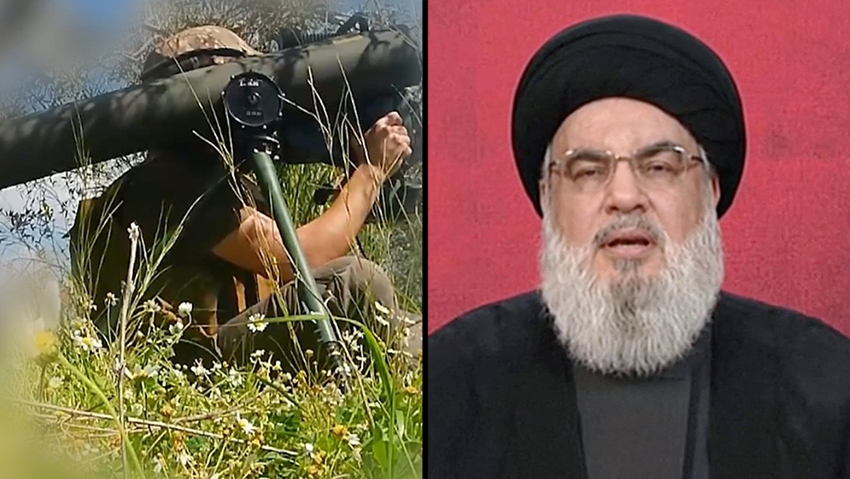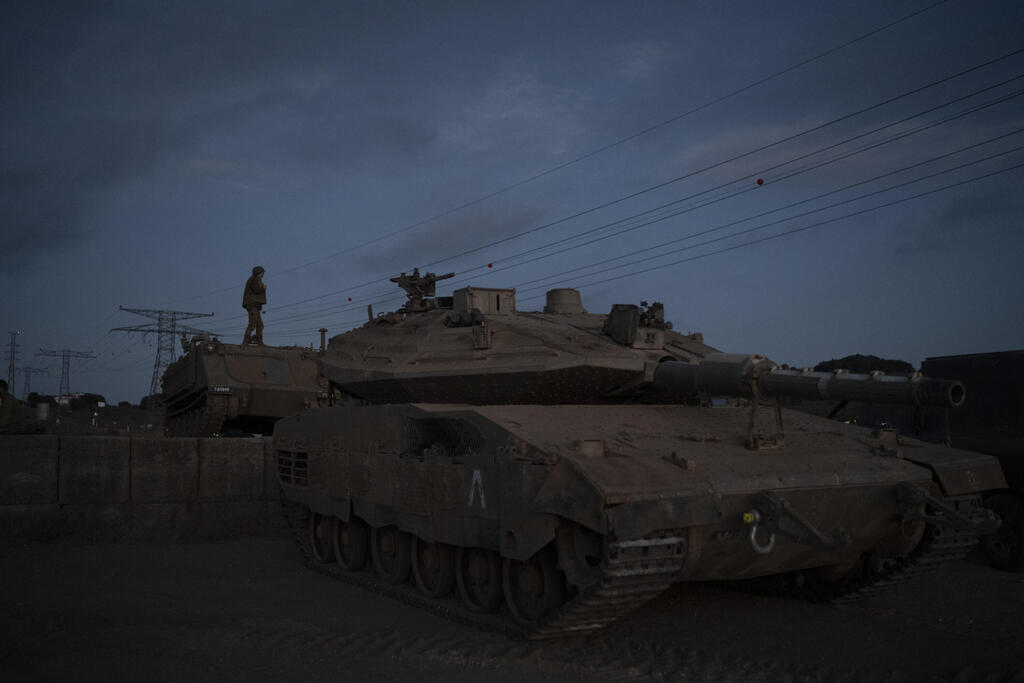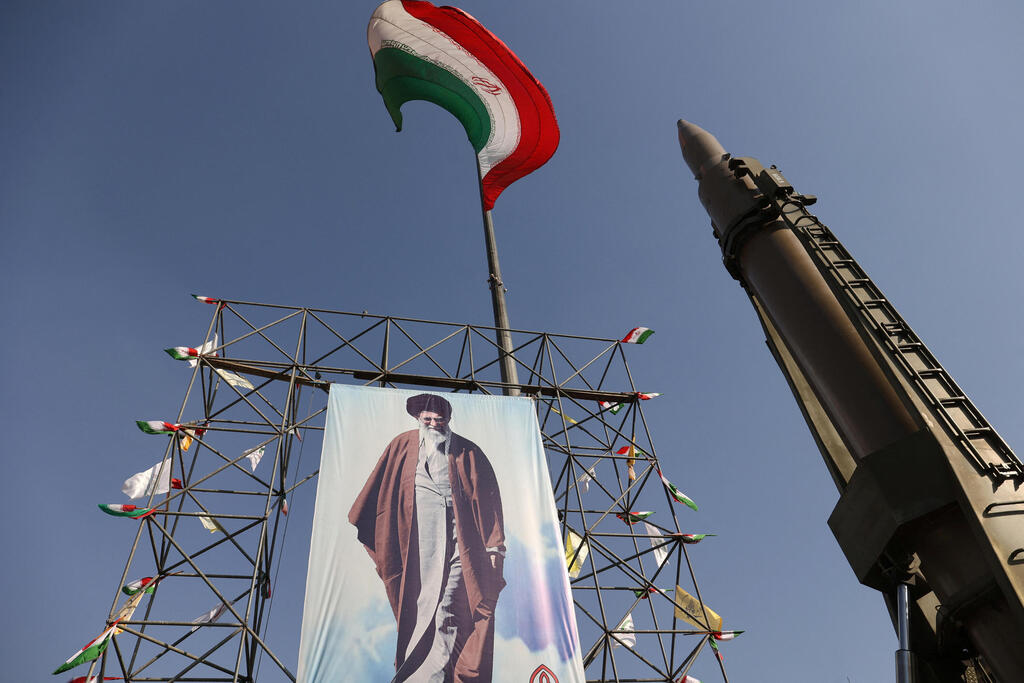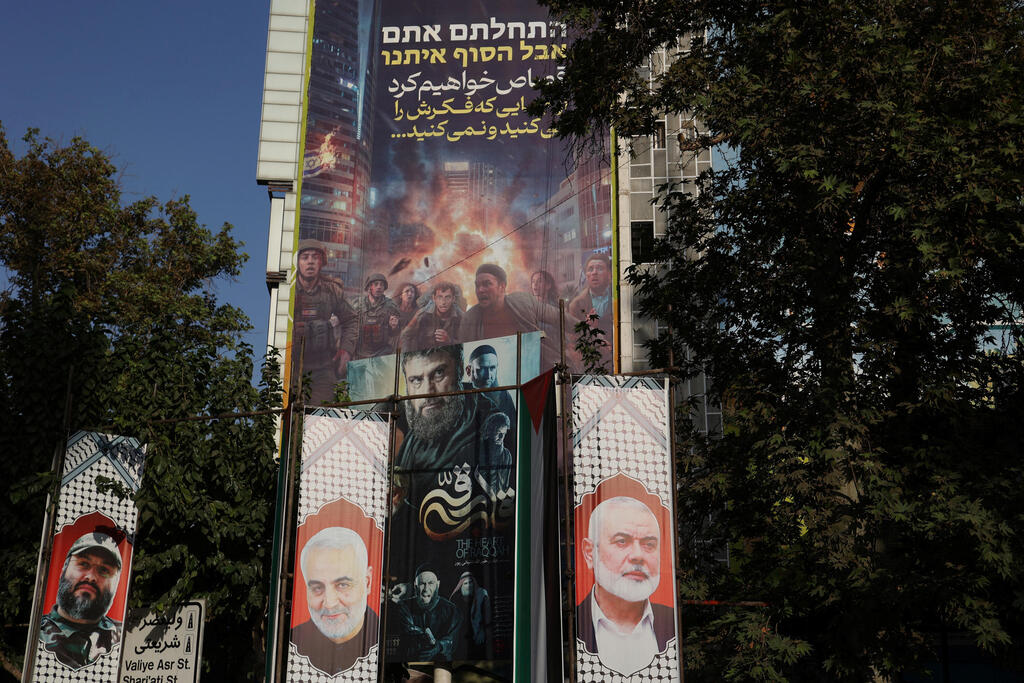Getting your Trinity Audio player ready...
The IDF continued its extensive airstrikes in Lebanon for the second day of Operation Northern Arrows, aimed at degrading Hezbollah’s capabilities as much as possible.
While the operation is focused on aerial attacks, the army has not ruled out the possibility of a ground incursion, according to IDF Spokesperson Rear Admiral Daniel Hagari. He emphasized that Israel will do whatever is necessary to ensure the safe return of northern residents to their homes after nearly a year of escalating conflict.
The heavy strikes and Hezbollah’s intense rocket barrages on northern Israel have raised international concerns about a potential escalation into full-scale war, which could include a ground offensive in southern Lebanon to push Hezbollah terrorists away from the border.
Several international news outlets have compared the military capabilities of the IDF and Hezbollah amid these fears. An article published Tuesday in the Wall Street Journal highlighted one of Hezbollah’s "most lethal" weapons— the Iranian-made Almas anti-tank missile, based on the Israeli Spike missile, which was reportedly captured by Hezbollah during the 2006 Lebanon War and transferred to Iran.
The Almas (Farsi for “diamond”) missile is reportedly comparable to advanced anti-tank systems like the American Javelin, which has been used extensively by the Ukrainian armed forces against Russian armored vehicles. It has been used by Hezbollah in recent years for precision attacks. Its first documented use was in January, when Hezbollah released footage of a missile strike on an Israeli radar and other reconnaissance equipment near the border.
IDF strikes in Sidon, southern Lebanon
According to the report, Hezbollah has been bolstering its preparations for a potential large-scale war in recent months, expanding its tunnel network in southern Lebanon, relocating fighters, and increasing arms smuggling.
U.S. and regional sources reported that Iran has increased its supply of light weapons, anti-tank missiles and long-range unguided missiles to Hezbollah.
A former Hezbollah officer described the south as "boiling," claiming, “We have everything the Iranians have.”
During the 2006 Second Lebanon War, Hezbollah used anti-tank missiles to inflict significant damage on Israeli forces.
Last week, Hezbollah leader Hassan Nasrallah hinted at preparations for a ground invasion, calling it a “historic opportunity” and expressing eagerness for such a scenario. “We’re waiting for their tanks. When they come, they’re welcome,” he boasted.
Ynet military analyst Ron Ben-Yishai noted that Nasrallah’s emphasis on the possibility of a ground invasion indicates his apprehension about such a development.
Syrian experience, Ukrainian methods
The Wall Street Journal highlighted Hezbollah’s military buildup since the 2006 war nearly two decades ago, noting that the group has amassed tens of thousands of rockets, although thousands were destroyed in Israeli airstrikes in recent days. Hezbollah fighters have gained valuable experience in Syria’s civil war, fighting alongside Russian and Iranian forces and learning conventional military tactics.
The report warns that a potential ground offensive in southern Lebanon would play to Hezbollah’s strengths. Military analysts fear such an operation could become a quagmire for Israel, akin to its entanglements in Gaza.
“It’s a little like saying to the United States in 1980, ‘Let’s go back into Vietnam,’” said Daniel Byman, a former U.S. government official and senior fellow at the Center for Strategic and International Studies in Washington.
Analysts cited in the report also suggest that Hezbollah could adopt tactics used by Russia in Ukraine, launching barrages of rockets and drones to overwhelm Israel’s air defenses. Israeli officials reportedly estimate that such a scenario could result in hundreds of casualties. “It’s not going be a walk in the park,” Assaf Orion, a retired IDF brigadier general, told the Wall Street Journal, adding that preventing all damage in such a war would be impossible.
While Hezbollah is unlikely to seek a conventional military victory against Israel, which holds a clear advantage in air power and intelligence capabilities, the terrorist group may try to draw Israel into a prolonged war of attrition.
“Israel can cause destruction in Lebanon, it’s not up for discussion. There is a gap in the military balance,” said Elias Farhat, a retired Lebanese army general. “But Hezbollah has asymmetric weapons. They proved their skill in using anti-tank missiles in 2006. They are well-trained.”
Israeli officials acknowledge the threat. “Hezbollah is not Hamas—there are similarities, but there are also differences. The terrain is different, the enemy is different, the threats are different and the challenges are different,” Defense Minister Yoav Gallant said during a visit with IDF soldiers from the 7th Armored Brigade and the 202nd Paratroopers Battalion, who were training for ground combat in Lebanon.
Iran continues to threaten Israel
“One thing I know: every Hezbollah fighter you encounter, you will know how to eliminate. I am 100% sure of that, and they understand it,” Gallant added. “Hezbollah is aware of what I’m saying and is concerned. You understand very well that the moment may come when we give the order, and this system will move forward. Therefore, we need to make the best preparations.”
5 View gallery


Missile exhibit on streets of Tehran, Iran
(Photo: Majid Asgaripour/WANA (West Asia News Agency) via REUTERS)
Gallant noted that Hezbollah has suffered “severe blows” and that its morale is low. However, he cautioned troops to take Hezbollah’s threats seriously, saying, “When they say they want to strike us, destroy us, harm us — take it seriously. That is their goal, and they mean it.”
Amid fears of a broader conflict, Iranian President Masoud Pezeshkian did not rule out Tehran’s potential support for Hezbollah in the event of a full-scale war.
“We must not allow for Lebanon to become another Gaza at the hands of Israel,” he told CNN. “Hezbollah cannot do that alone. Hezbollah cannot stand alone against a country that is being defended and supported and supplied by Western countries, European countries and the United States of America.”
However, he stressed that Iran does not seek regional war and accused Israel of pushing for it.
Pezhkian’s statements came as Iran's Supreme Leader Ayatollah Ali Khamenei, who holds ultimate authority, continued to threaten Israel. In Tehran, missile displays were set up alongside signs with messages of vengeance, including one in Hebrew that read: “You started it, but we’ll finish it.”
Pezeshkianemphasized that Iran’s response to the killing of Ismail Haniyeh would come “in due course.”









